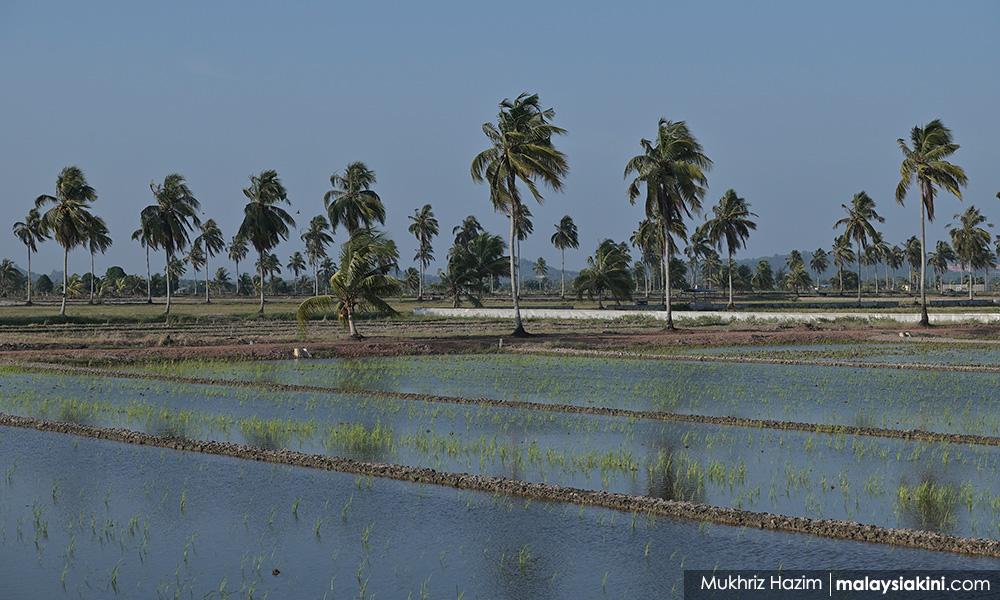A coalition of agriculture groups has expressed concern that the government's push to implement the large scale smart paddy field project (SBB), which is intended to raise the income of farmers, could have unintended consequences.
Pertubuhan Persaudaran Pesawah Malaysia (Pesawah) and the Malaysian Food Security and Sovereignty Forum noted that estate managers under the project are now pushing other cultivations alongside paddy such as giant freshwater shrimps (udang galah).
They noted that the original goal of the SBB was intended to improve paddy cultivation to increase yield and therefore questioned the shift in strategy.
"We take this latest development seriously as it is becoming increasingly clear that this SBB project will empower estate management to do whatever project they want in areas they have leased or owned.
"The history of shrimp farming on a paddy field project in Kerpan, Kedah in the early 90s should teach us that when paddy land has been turned into a shrimp pond, it will bring other problems such as soil and water pollution.
"In fact, it is no longer suitable to be converted back to a paddy field when the lease period ends," they said.
Likewise, they said Arowana fishing farming projects in paddy fields around Tasik Bukit Merah in Perak had also ended up harming paddy cultivation.
"The fish farming project uses a lot of water from the same source of the Bukit Merah Dam, causing paddy crops to often lack water," they said.
The group reminded the government that the original intent of the SBB was to increase the self-sufficient level of rice to 75 percent and increase yield production by seven tonnes per hectare while also increasing farmers' average income to RM7,000 per hectare.
"Less than a year after the project started, the estate changed its strategy by farming shrimp.
"Are the leading companies (appointed by the Agriculture and Food Industries Ministry) not confident in their own ‘smart’ paddy planting plans or were from the beginning not interested in the agenda to increase local paddy production because it is easier and more profitable to import rice and raise shrimp?" they asked.
They also expressed concern that based on the current model, SBB could marginalise younger farmers who are renting land for paddy cultivation as landlords may favour more lucrative deals with the companies.
"In addition, the risk of entry of cheaper foreign workers will leave local workers jobless while existing tractor and machinery operators will lose customers plus the risk of land being mortgaged for not being careful with the terms and conditions of the agreement.
"The land is also at risk of damage due to widespread pesticide usage, maximum use of soil's nutrients without replacement or land use being converted to other activities," they said.
The groups urged farmers and landlords considering the SBB project to think deeply, refer to more experienced farmers and seek legal advice before signing any agreement.
"As an alternative to this SBB project, we recommend that the concept of group farming led by local establishments, cooperatives or small and medium enterprises be implemented in areas that are derelict, less productive or still lagging in terms of infrastructure.
"The existing areas that farmers still work on should not be disturbed, the agencies should continue to help them better in terms of capital support, infrastructure, seed and agricultural inputs market and a fair paddy price system and paddy deduction rate," they said. - Mkini





No comments:
Post a Comment
Note: Only a member of this blog may post a comment.